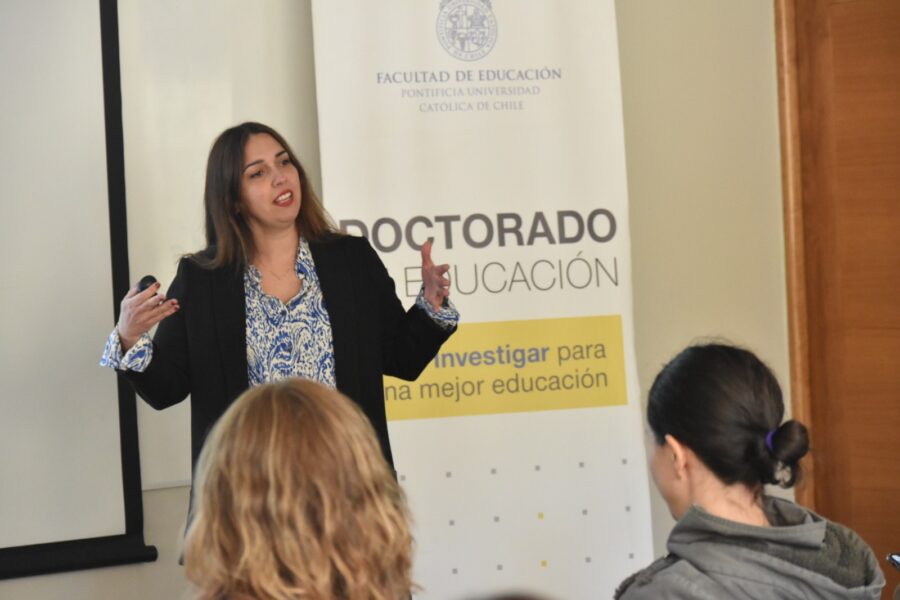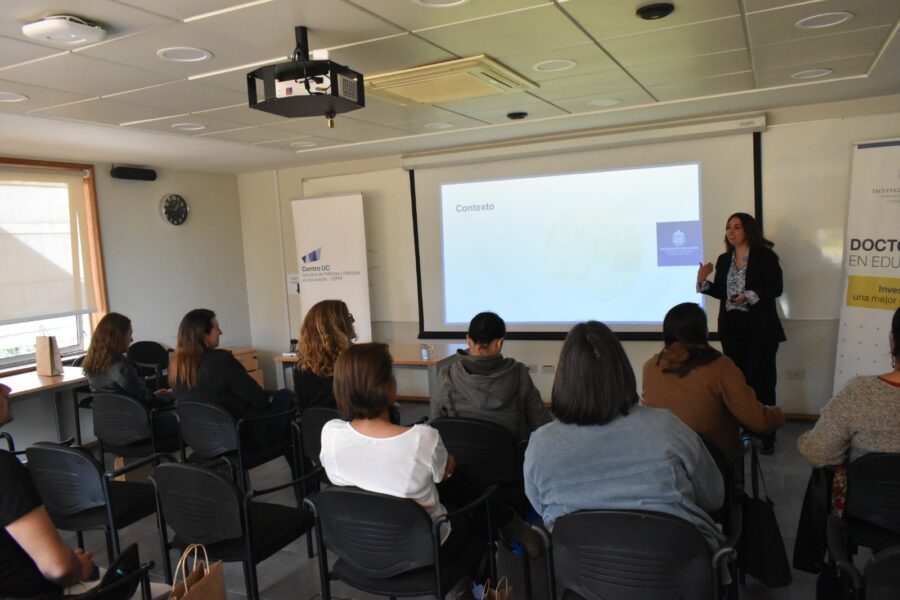Colloquium addressed tensions between educational policies and school practices in Chile
May 22, 2023
The excessive focus on the contents evaluated to the detriment of other aspects of learning was part of what was addressed in a new UC Education Colloquium, which included the participation of Javiera Marfán.

The second UC Education Colloquium was held at the beginning of May and featured the academic, Javiera Marfan, who presented “Schools deciding the purpose of education”
On the occasion, the director of CEPPE UC, Magdalena Claro, commented that "this activity, which we have been carrying out for a few years as a research ecosystem of our faculty, seeks to learn and generate a dialogue about what we do in research with the educational policies and practices that are being developed in our country."
In his presentation, Marfán addressed how the National Quality Assurance System (SAC) although it broadens the spectrum of educational goals, aligned with a social purpose and individual development of education, it is anchored to accountability mechanisms that often stress the curriculum.
“The above refers to the excessive focus on the contents evaluated to the detriment of other aspects of learning. In that sense, Today there is a set of new phenomena that are gaining more and more importance and that are making countries therefore begin to adopt curricular or evaluation reforms to be able to ask something more of education and not only develop the labor force, but rather also prepare subjects, students, for the future”, explained the academic.
He also pointed out that the current educational scenario is challenged by global social phenomena, such as the climate crisis, technological transformations and migration, which has led to the need to expand educational goals and prepare students to face these new challenges. In this sense, international organizations such as Unesco and the OECD are also participating in this process, calling on countries to establish a new social contract to define the purpose of education.
Marfán added that “the SAC establishes that education must fully develop students in intellectual, academic, social, personal, spiritual and physical aspects. However, a contradiction arises between the goals established by the policy and the strategies implemented, generating uncertainty about the real purpose of education in the country".
His research was based on the Policy Enactment framework, which considers the interpretation and transformation of educational policy by local actors, mainly school leaders. Changes in school practices, such as the creation of missions, roles, responsibilities and work tools, are analyzed to observe how the policy is implemented in practice.
The research was carried out in four establishments in Santiago, selected for their diversity in the SAC indicators. Observations of organizational routines were made and members of the management team, mid-level leaders and teachers were interviewed. The results indicate that school stakeholders do not perceive the SAC as something new, but as a continuity.

